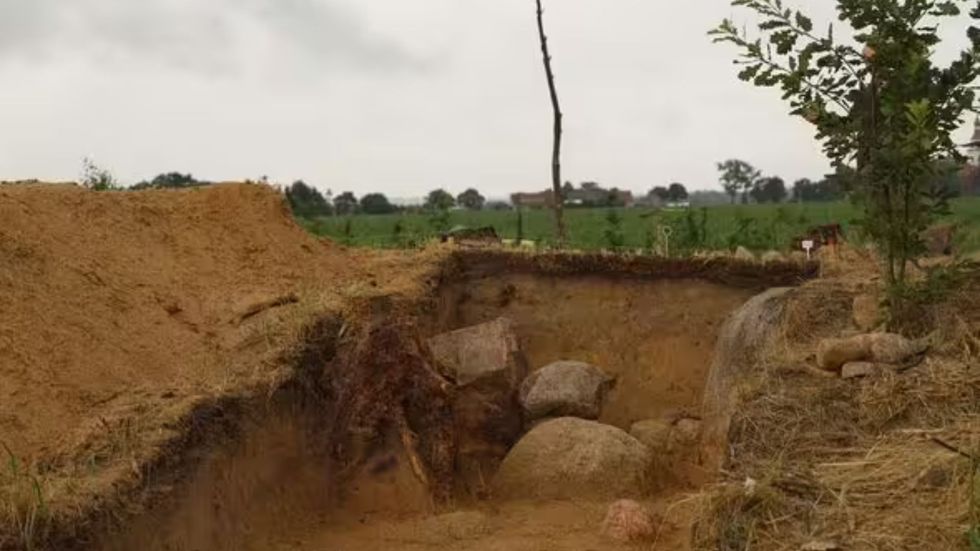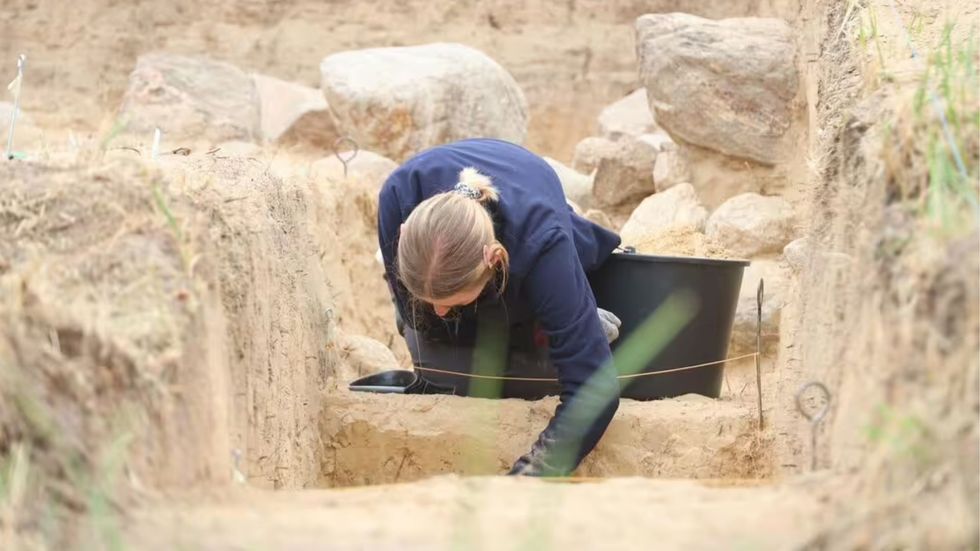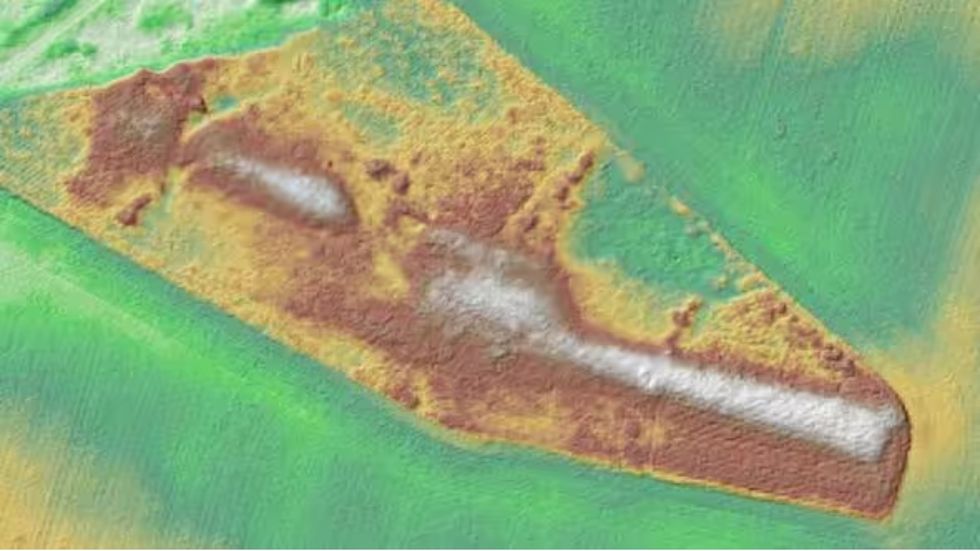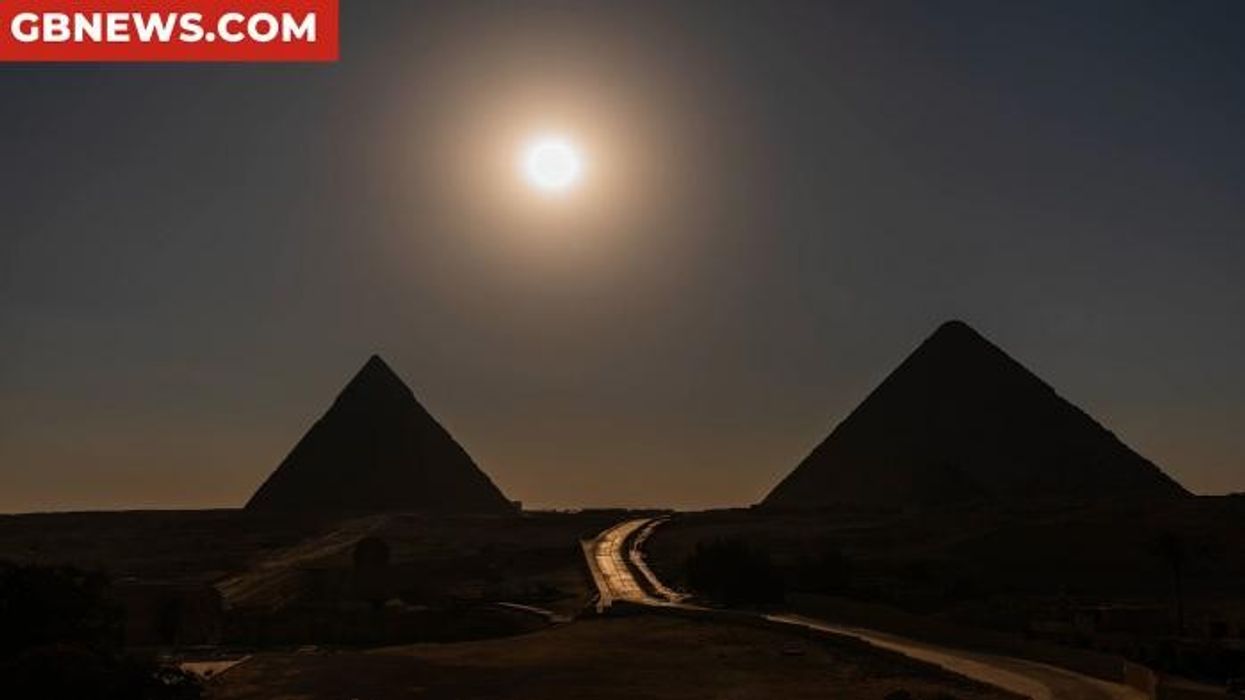Ancient 'pyramids' found 3,000 miles away from Egypt
Excavation work revealed that two of the tombs date back to the late Stone Age
Don't Miss
Most Read
Ancient pyramids over 3,000 miles away from Egypt have been discovered near the village of Wyskoć in Poland's Chłapowski Landscape Park.
Known as the "Polish pyramids," the structures are reported to contain ancient tombs related to one of the region's earliest farming communities.
Consisting of five mounds, each one stretches up to 200meters in length and nearly 13 feet high.
Excavation work revealed that two of the tombs date back to the late Stone Age.

The pyramids are thought to be around 5,500 years old
|Facebook/ Zespół Parków Krajobrazowych Województwa Wielkopolskiego
Artur Golis, a senior official at the parks complex, said: "Although the Funnelbeaker cultures were fairly egalitarian communities, individuals important to the population - a leader, a priest, a shaman - were buried in tombs."
Researchers from Adam Mickiewicz University in Poznań journeyed across the site during a routine field survey.
Each tomb is believed to have been intended to hold one person.
The body would be placed on its back with legs pointing towards the entrance of the mound.
LATEST DEVELOPMENTS
Graves tended to be closed off with stones and any personal items.
Speaking to the Polish Press Agency, Golis added: "In the case of this megalith, the skeleton probably no longer survives, but the burial offerings might."
Excavation work in the area continues, with no burial goods being discovered thus far.
Burial goods could include pottery, copper ornaments or stone tools.

Excavation work in the area continues
|Facebook/ Zespół Parków Krajobrazowych Województwa Wielkopolskiego
This is only the second time tombs have been identified in Wielkopolska.
They are known locally as "Polish pyramids" or "giants' beds", having first been discovered in 2019.
Weighing several tonnes, large boulders would go at the front of each mound, facing eastwards.
Due to natural erosion and human activity, these boulders have disappeared for thousands of years.

Each tomb is believed to hold at least one individual
|Facebook/ Zespół Parków Krajobrazowych Województwa Wielkopolskiego
The public cannot access the site currently until excavation and preservation work is complete.
Officials have confirmed they will clarify whether it is safe to open up the structures for tourists to see for themselves.
The news follows a remarkable discovery in southern Egypt, where a rare rock has been uncovered that could unlock secrets about the country's earliest rulers.
The ancient etching was found carved into sandstone near Aswan and is believed to date back to the fourth millennium BC, predating the construction of the first pyramids by centuries.











